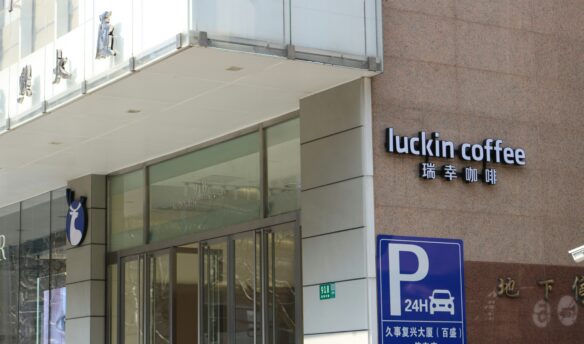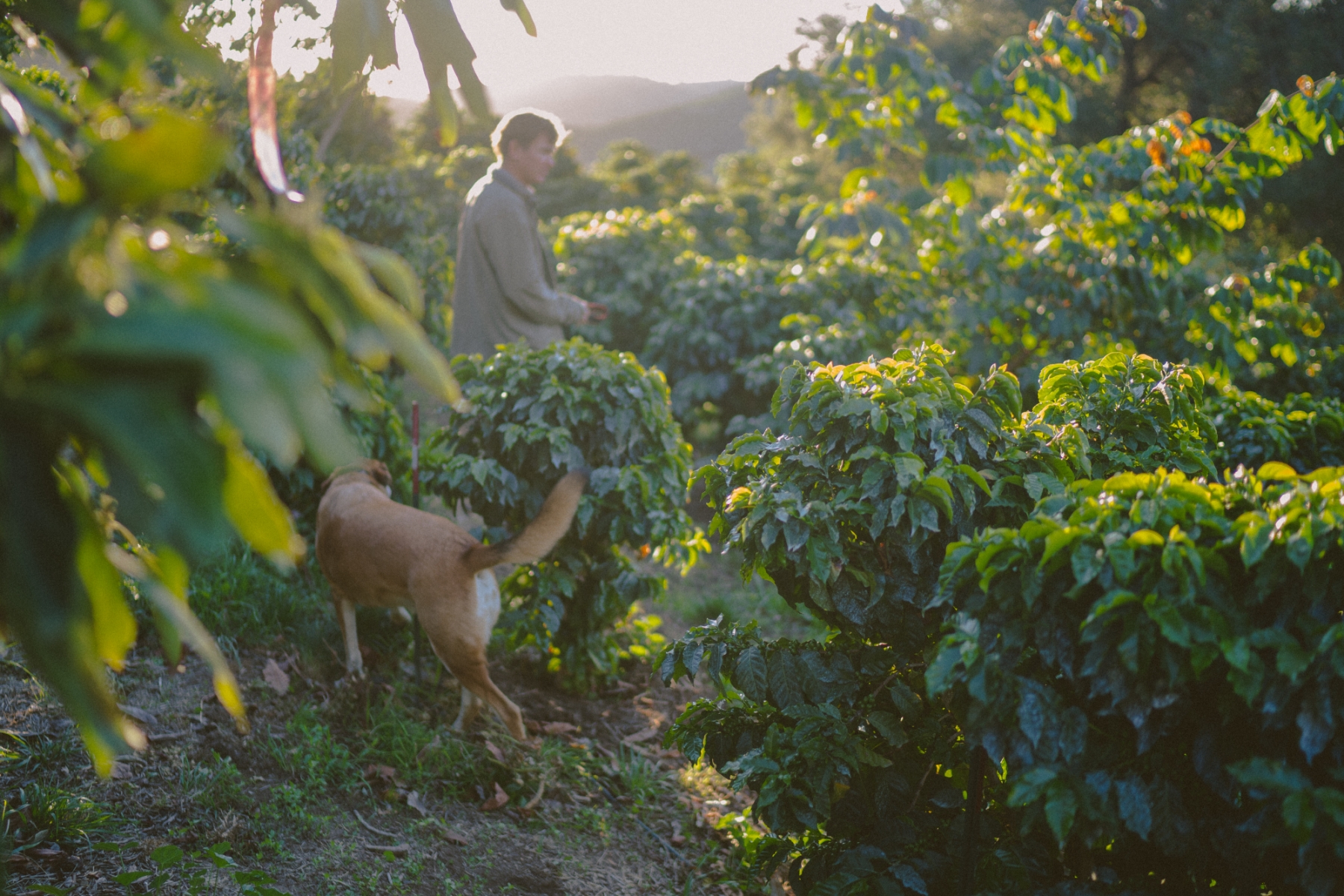I’ve got a latte for [redacted]! Starbucks tries to stop customers from using political slogans on coffee cups in the lead-up to South Korea’s presidential election. Plus, a new robusta flavor wheel and more evidence that sustainable farming practices benefit coffee producers.
‘Coffea Canephora (AKA Robusta) Finally Gets A Flavor Wheel’ – via Sprudge
Once relegated to low-cost blends and jars of instant coffee, Coffea Canephora, usually referred to as robusta, has grown in popularity in recent years. Even the specialty coffee industry—which has often dismissed robusta as inferior in taste to arabica—is beginning to embrace it, thanks to farmers and researchers working to improve robusta’s flavor.
While robusta makes up 44% of all coffee grown, it still lags behind arabica in terms of attention to sensory analysis. For example, there’s a whole language that evaluators and growers use to talk about arabica and tools they use to judge and discern its quality. Robusta has its own grading system, but until now, it hasn’t had a separate flavor wheel to help with sensory evaluation.
To tackle this, a team of researchers from Brazil have created a flavor wheel specific to C. canephora. As described in a new paper published in the journal Scientific Reports, the goal of the new wheel is to standardize aroma and flavor descriptors so farmers and researchers can continue improving robusta’s quality.
Researchers recruited 49 professional coffee graders from Brazil and Switzerland to create the wheel, who evaluated 67 samples from 13 different countries across three cupping sessions. The evaluators came up with over 200 flavor descriptors during the first cupping session, which were whittled down over the following sessions to create the final wheel.
Like the comparable arabica flavor wheel produced by the Specialty Coffee Association, the new robusta wheel features an inner circle of broad flavor categories that stem out into more specific notes. For example, the fruity subsection includes categories like tropical fruit and berry, which are then broken down into more specific flavor descriptors like banana, star fruit, raspberry, and strawberry.
The authors acknowledge there’s overlap between the arabica flavor wheel and their robusta wheel but also note differences: “Particularly, the descriptors tomato, fermented soy sauce (shoyu), coconut water, and mushroom were included under the category ‘umami’, and seems to be unique to C. canephora.”
More research is needed to explore these differences further, the authors write. They also advocate for more increased use of robusta on high-profile stages such as the World Coffee Championships, which would be “a crucial step to highlighting C. canephora in the specialty coffee arena and leverage quality.”
Read the full story on the first robusta flavor wheel here.
‘In South Korea, Even Your Cup of Starbucks Could Be Too Political’ – via BBC News
The lead-up to South Korea’s presidential election, taking place June 3, has become increasingly fraught—so much so that some businesses are going out of their way to let people know that they are “politically neutral.”
As Yuna Ku reports for BBC News, Starbucks baristas have stopped writing customers’ names on cups to avoid accidentally shouting a political slogan from customers giving charged phrases as the name for their order.
In April, South Korea’s highest court removed former president Yoon Suk Yeol from office after months of legal wrangling. Yoon attempted to declare martial law in December 2024, which caused widespread protests nationwide.
Yoon’s removal triggered a new election, but the country’s political polarization has been exacerbated since December. Lee Jae-myung, leader of the opposition Democratic Party, is now the frontrunner in the election.
In recent months, customers have been using the Starbucks app to order drinks and using political phrases like “arrest Yoon Suk Yeol” or “Lee Jae-myung is a spy” as the name. The baristas then have to call these slogans when a drink is ready.
No longer: Starbucks said it would stop allowing customers to enter the names of the six presidential candidates into their app until after the election. “Our goal is to make sure every customer has a great experience in our coffeehouses,” Starbucks said in a statement. “To help with that, we sometimes block certain phrases that could be misunderstood by our employees or customers — like names of political candidates with messages of support or opposition during election season to maintain neutrality.”
Starbucks is not alone in trying to keep things neutral. South Korean celebrities, particularly K-pop stars, are often held to extreme standards of behavior by their fans and the industry. When it comes to politics, many avoid any potential perceived endorsement—even clothing color choices could be seen as endorsing one party over the other.
The BBC spoke to several Starbucks customers who thought the move was a step too far. One patron noted, “What if your real name is the same as a candidate’s?”
Read the full story on Starbucks’ attempt at political neutrality here.
More News
‘George Jinyang Peng Wins The 2025 World Brewers Cup Championship’ – via Sprudge
‘Large US Midwest Coffee Roaster Hikes Prices as Tariffs Hit’ – via Reuters
‘Coffee Affordability Study Shows How Many Minutes Americans Must Work To Buy a Cup of Joe’ – via Comunicaffe
‘Costa Rica’s Bee Lab Saves Bees, Boosts Coffee Yields’ – via Tico Times
‘Uganda’s Coffee Industry Sets Sight on China’s Burgeoning Market’ – via China Daily
Coffee and the Climate Crisis
Last week, we told you about a new study from TechnoServe that found investing in regenerative agriculture can deliver multiple benefits—including increased crop yields, higher farmer incomes, and reduced carbon emissions.
In Ethiopia, a similar approach yielded positive results, Daniel Woods reports for Global Coffee Report. Over three years, the charity Farm Africa launched a program that reforested more than 5,000 acres of land, boosted household incomes by 45%, and increased coffee exports by 70%.
Farm Africa worked closely with government agencies and local Participatory Forest Management Cooperatives (PFMCs) to implement various initiatives in the Oromia region. PFMCs are organizations run by farmers that seek to proactively and sustainably manage the forests in their communities. Some of the initiatives included establishing local nurseries to help distribute seedlings for reforestation and repurposing waste products like coffee husks for vermicompost and stove briquettes.
By connecting with financial institutions, cooperatives also secured funding for processing equipment and marketing support. This resulted in more coffee reaching export quality and more than twice as much meeting specialty standards.
“The Forest Coffee project shows that protecting nature doesn’t have to mean sacrificing income,” said Mulugeta Tafesse of the Abdi Bori PFMC. “With ingenuity we can grow profitable new income streams rooted in production methods that restore and protect our ecosystems.”
Beyond the Headlines
‘The SCA’s Q Program Takeover Leaves the Coffee Industry Divided’ by Fionn Pooler
‘Five Things We Learned at the 2025 London Coffee Festival’ by Claire Bullen








